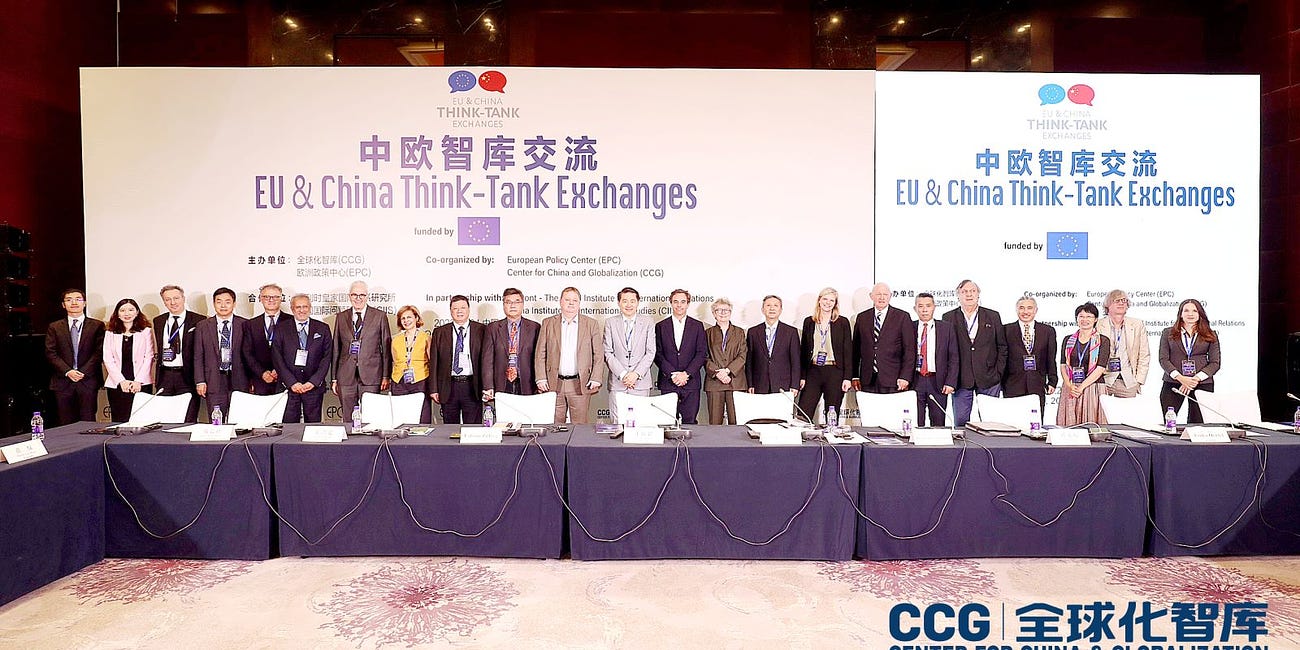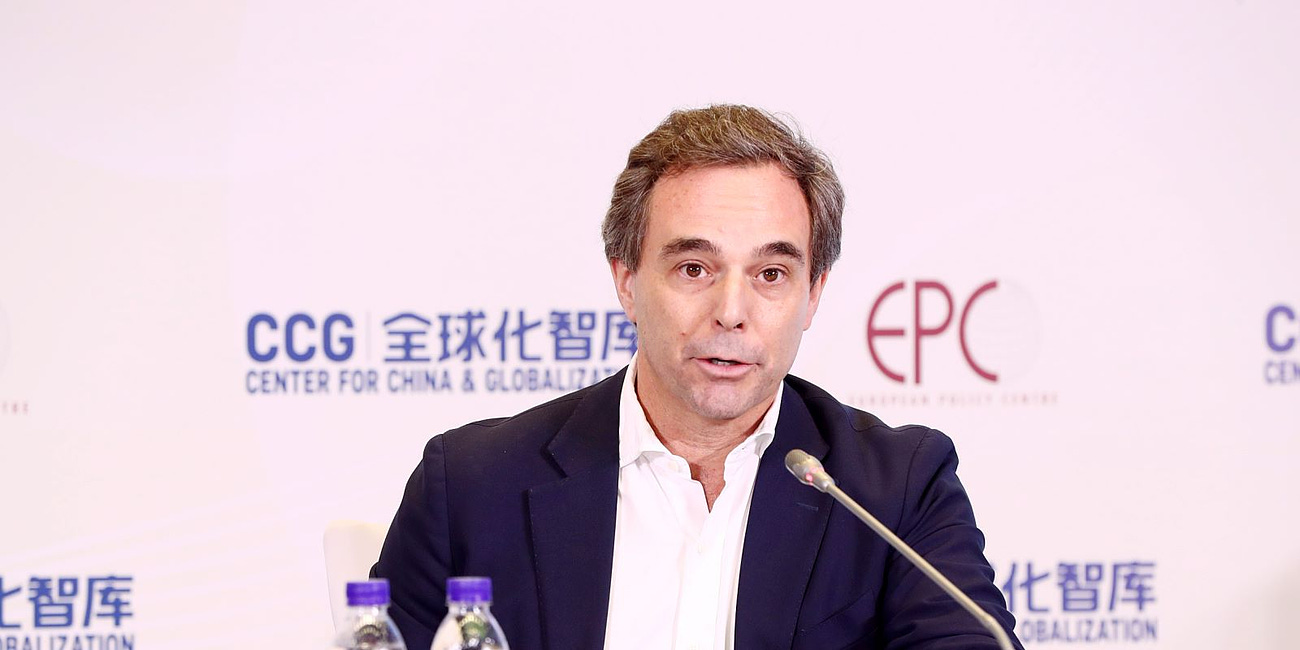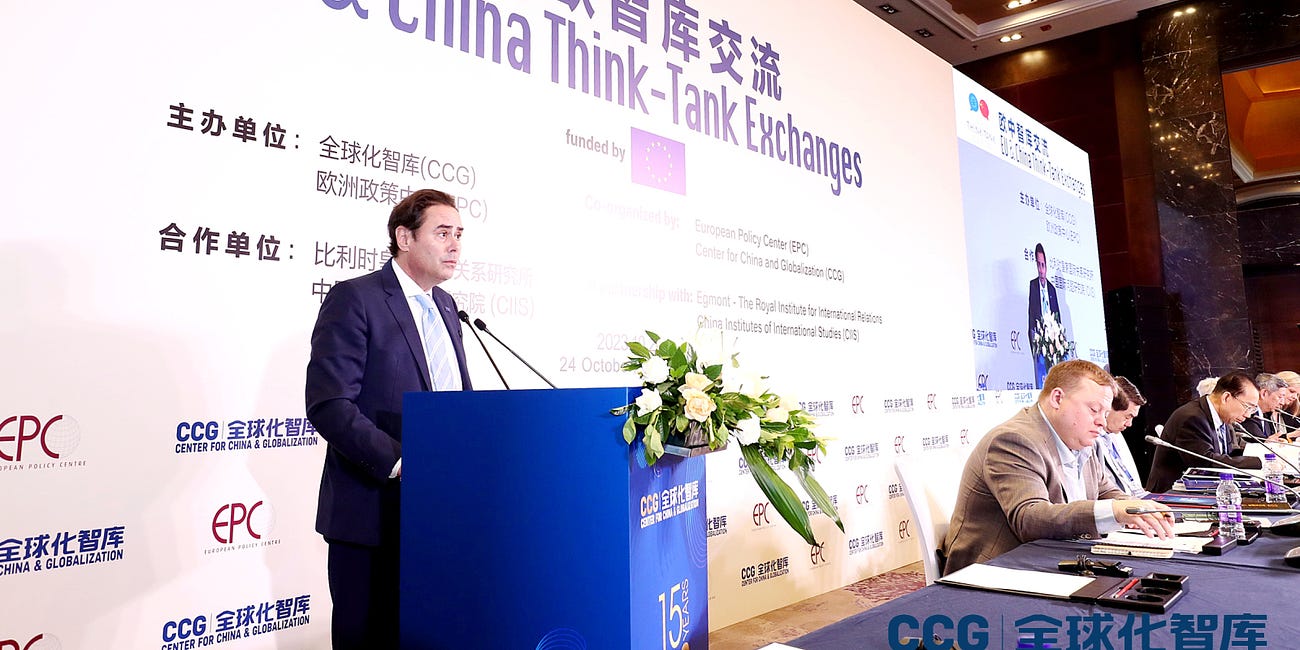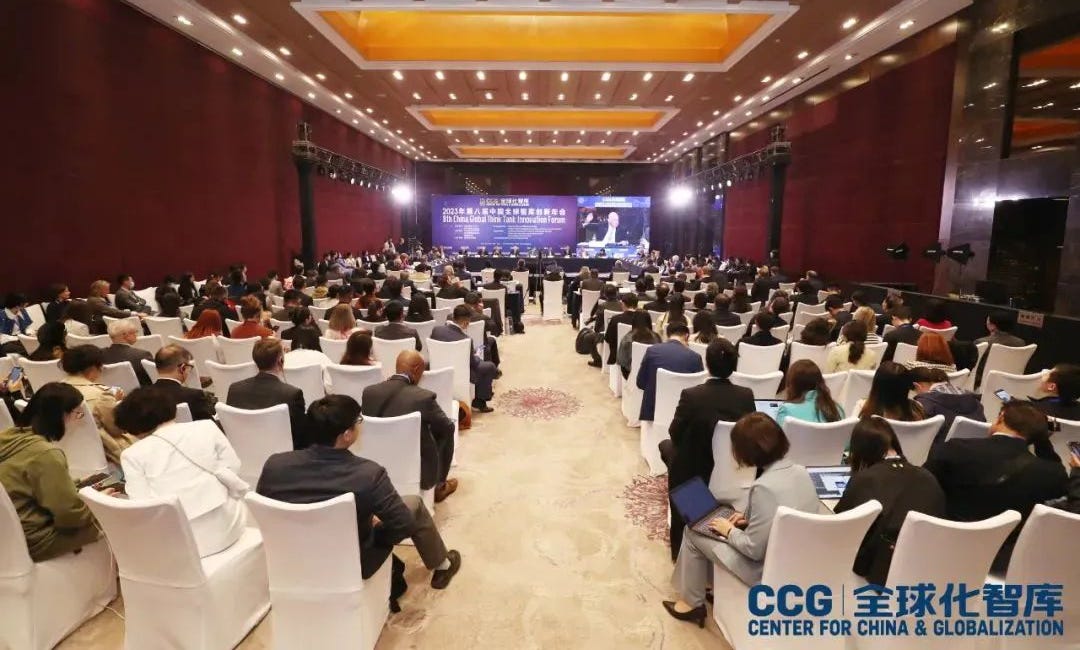Opinion: From wars to global warming, the world is crying out for collective action
Henry Huiyao Wang, Founder & President of CCG, initiates ten imperatives in South China Morning Post on climate, infrastructure, digitalization, public health, trade, and global governance, and more.
In this newsletter, we share with you Dr. Henry Huiyao Wang’s latest opinion column on South China Morning Post.
From wars to global warming, the world is crying out for collective action
Amid increased geopolitical strife, our interconnected world requires a collaborative approach on climate change, conflict, infrastructure, public health, trade, and more, to safeguard our shared home
In an era punctuated by escalating geopolitical strife and a burgeoning anti-globalisation sentiment, the imperative for international cooperation has vaulted to the forefront of global discourse.
This was the prevailing theme at the recent 8th China Global Think Tank Innovation Forum in Beijing, followed immediately by the European-Union-funded EU-China Think Tank Exchanges. The sense of urgency for collective action was palpable among the attendees, which included a diverse assemblage of over 100 think-tank representatives from more than 20 countries and regions.
As president of the Centre for China and Globalisation, which hosted the events with partners including the European Policy Centre, I had the opportunity to propose a framework of cooperation, designed to mend fissures among nations and initiate a united front to safeguard our shared home. Here are the 10 imperatives:
First, climate. The spectre of climate change looms large over humanity, challenging us to transcend mere conversation and take concerted action.
Despite the complex web of industrial policies, subsidies and commitments, particularly those by developed nations to their developing counterparts, the necessity for a collaborative approach to “de-risk” our planet is undeniable. It is incumbent on all nations to foster an environment conducive to finding solutions to this universal menace.
Second, conflict. In the shadow of the wars in the Middle East and Ukraine, the call for peace resonates with an urgency that transcends borders and political divides. The tragedies and suffering in the areas of conflict are stark reminders of the devastating toll of war on the global community.
It is necessary for the international community to champion the cause of peace, to mediate with unwavering resolve and to extend humanitarian aid where it is most needed through any means available, including diplomatic channels, multilateral organisations and grass-roots movements.
The pursuit of peace must remain a paramount objective, for it is the bedrock on which a stable, prosperous and just world order can be built.
Third, infrastructure. Another domain ripe for cooperation lies in global infrastructure. Infrastructure serves as the backbone of development, particularly in the developing world.
China’s Belt and Road Initiative has catalysed a global movement that is echoed in the construction proposals put forward by the US-led Build Back Better World, Europe’s Global Gateway and the India-Middle East European Economic Corridor.
Such initiatives, collectively supporting the developing world, highlight the imperative for leveraging existing financial platforms and could – and should – work together. Countries and multilateral lenders such as the World Bank and Asian Infrastructure Investment Bank can help bridge the global infrastructure financing gap.
Fourth, digital. In today’s digital age, data has emerged as a crucial resource, likened to oil in the 21st century. An open attitude towards the flow of data is essential, but so is the establishment of a coherent global governance framework.
Disparate approaches, exemplified in the EU’s General Data Protection Regulation, the California Consumer Privacy Act in the US, and China’s Personal Information Protection Law, hinder the potential for digital globalisation. A unified regulatory body, perhaps akin to a World Data Organisation, is critical to the harmonising of these disparate policies.
Fifth, public health. The Covid-19 pandemic was a harsh reminder of the pitfalls of insufficient cooperation. Unlike the successful collaboration against the severe acute respiratory syndrome (Sars) and Ebola outbreaks, the world failed to unite in the face of Covid-19, resulting in widespread catastrophe. This must serve as a lesson to enhance preparedness for future pandemics.
Sixth, institutions. At the core of global governance stands the United Nations, an institution whose authority must be safeguarded. As the second-largest payer of UN dues, China recognises the importance of upholding international law and order as defined by the UN, urging all member states, including the United States, to fulfil their obligations.
Seventh, North-South cooperation. The dynamic between the Global North and South presents an opportunity for China, which straddles both the developed and developing worlds, to serve as a mediator. By fostering greater cooperation in this area, China can help harmonise the interests of both communities, contributing to sustainable global development and governance.
Eighth, finance and trade. The post-1945 era has largely been a testament to the peacekeeping power of international trade and investment. As nations become increasingly interdependent, the imperative to strengthen – not weaken – the World Trade Organization and its mechanisms has grown ever more apparent.
In the realm of international finance, diversifying payment currencies beyond the US dollar, incorporating a greater share of major currencies, such as the euro and yuan, could yield a more balanced global economic framework.
Ninth, people-to-people exchanges. Promoting cultural tourism and international student and scholarly exchanges is another avenue through which nations can foster mutual understanding and respect. Such people-to-people ties are the bedrock of international cooperation and must become and remain the priority of governments after the lifting of Covid-19 restrictions.
Finally, international agreements. The lifting of sanctions and the revival of trade agreements, such as the China-EU Comprehensive Agreement on Investment, are crucial for enhancing economic cooperation and trade relations between nations.
While every country confronts its own set of challenges, the interconnected nature of our modern world necessitates a collaborative approach to our shared problems. Only through collective action can we endeavour to forge a stable, sustainable and prosperous world for future generations.









